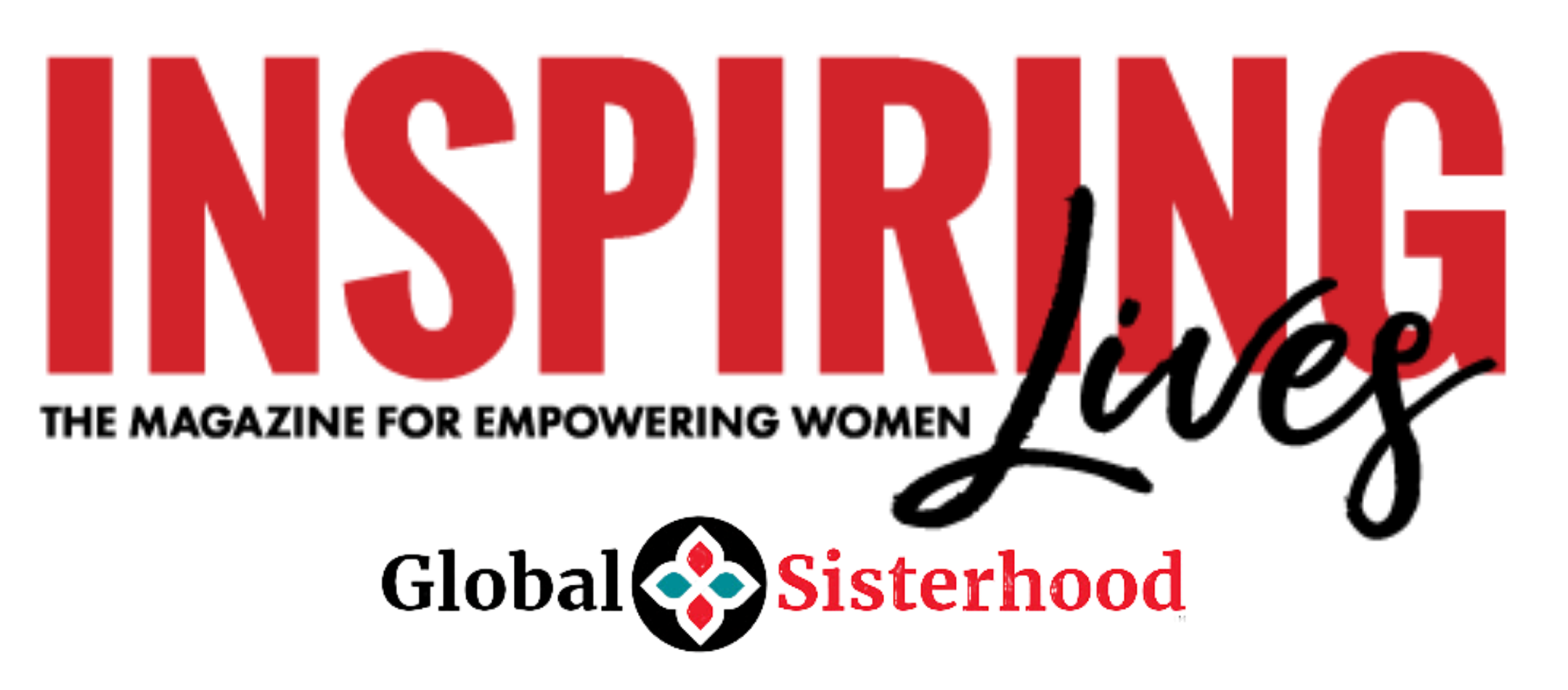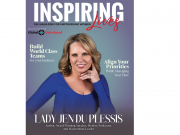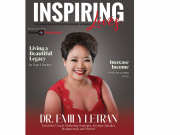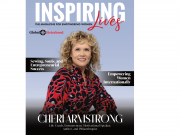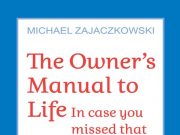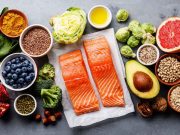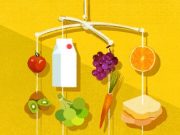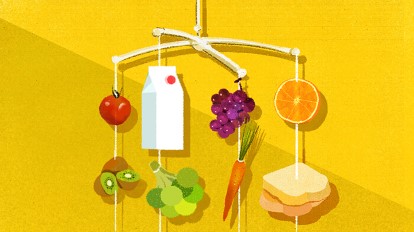You may be like me … a newly postpartum mama (again), or you may be several years into motherhood. Either way, you’re finding your rhythm. And now you may be thinking about weight loss and how to lose extra baby weight while eating even healthier.
The first thing you need to know is that there is no “normal” when it comes to losing weight after having a baby. Everyone is different, and there are several factors that contribute to postpartum weight loss, (such as, how you delivered and how quickly your body is healing). But there are some general nutrition and exercise tips that can be helpful to know as you settle into this next chapter.
The below principles, tips, and advice are all informed by Ayurvedic medicine and a Western understanding of postpartum healing.
Rest is essential for the first two-weeks postpartum. You might initially not think you need it, but it will catch up with you later so try to rest as much as possible.
Warmth is key, both for your body and your food. Bring a heating pad into bed with you when resting, and drink warm liquids when you can. Eat warm food. Eat foods that are literally warm and also those that contain warming spices like ginger, cardamom, coriander, cumin, black pepper, thyme.
Eat LOTS of good fats and protein!
Aim for easy-to-digest, simple foods, because you are healing! These are the same foods you should eat when sick or healing from any surgery: broths, soups, scrambled eggs, porridge, curries, etc. Avoid fried and overly sugary foods.
Always eat nutrition-dense foods, even when snacking! You’ll need all your energy, and every bite of food counts.
Aim for lots of omega-3s! Keep your levels high by eating omega-3-rich foods like whole eggs, fatty fish like salmon or sardines, or lamb.
Put a scoop of ghee/good butter in your oatmeal, coffee, or any hot soups. (Oats are great for breastmilk production, too.) Many Ayurvedic doulas recommend putting a scoop of ghee on pretty much everything you eat in the early postpartum days (unless you are nursing a baby with a dairy allergy, that is). Coconut oil also works. Olive oil is great, sesame oil is also great– now is NOT the time to skimp on fats! Getting quality oils helps to lubricate the body.
Drink lots of bone broth, if you can; broth is the ultimate healing elixir, and bone broth is great for your gut.
Good vegetables to eat cooked in the immediate postpartum period include: zucchini, asparagus, carrots, celery, and spinach. Wait to have heavier vegetables like sweet potatoes and butternut squash until 1 week after, as they can be harder to digest in those very early days. It’s a good idea to limit broccoli/kale/cruciferous vegetables for the first few weeks postpartum, as they can cause painful gas during this precious healing time.
Again, eat lots of amino acids and fats! Avocado, almond butter, olive oil, sesame oil, etc. Always eat any vegetables you prepare with plenty of healthy fats– and don’t be shy about eating higher-fat meats like chicken thighs, fatty fish, or chicken skin. The animal protein helps repair tissues in the body that have been injured during birth.
Heng Ou’s Book, The First Forty Days: The Essential Art of Nourishing the New Mother has wonderful recipes for this immediate postpartum period. For example, her egg yolk, collagen, and coconut milk custard recipe, is a great snack that optimizes for the kind of hormone shifts that happen in the postpartum period. The book also contains nourishing, lactation-boosting recipes for things like Oats, Cinnamon, and Ginger Tea as well as various congee, soup, and postpartum body care recipes that you can make ahead of time.
According to Alisa Vitti, CHC, Functional nutritionist and women’s hormone expert behind the MyFlo App, organ meats are also great during this time. She, too, emphasizes the importance of eating lots of soups, warming foods, amino acids, healthy fats, and protein as part of a healthy postpartum nutrition plan.
Remember, the best postpartum meals have one thing in common: they support healing. That means looking for foods that are rich in protein, vitamin C, and zinc—all nutrients that support postpartum recovery. Depending on how much blood was lost during delivery, iron may need to be a focus as well.
The best plate always, is a balanced one. A mix of protein, complex carbohydrates, and healthy fats will keep you full, help prevent dips in blood sugar, and support stabilized energy levels throughout the day. All things you’ll need to get through the first grueling months of parenthood.
Lean proteins can include hard-cooked and peeled eggs, canned salmon, or chickpeas, in addition to the obvious freshly cooked chicken or fish. Grains like quinoa or brown rice can balance out your protein. Fruit offers a great easy-to-snack-on fiber-rich carb option and avocado or walnuts tossed onto a bagged salad can add a bit of healthy fat to any meal. Smoothies can also be a lifesaver during this time.
One of the biggest pitfalls I see for new moms is the tendency to engage in restrictive or restrained eating behaviors while postpartum and/or breastfeeding. This isn’t the time to follow rigid diet rules under pressure to lose weight after pregnancy—which can translate to restrictive eating during one of the most nutrient-demanding periods of a new mom’s life, nor is it the time to sacrifice taking care of yourself, (i.e., going long stretches without eating) while you take care of your baby. Under-eating during the postpartum period can lead to malnutrition, a prolonged healing process, reduced milk supply, and poor mental health.
4 Easy Postpartum Meal Ideas
Blueberry almond overnight oats
Rich in fiber, B vitamins, and iron, overnight oats are an easy-to-assemble breakfast that will ensure you’re getting the nutrients you need to start your day. You can quickly make a few jars to have on hand in your fridge for a nutritious breakfast or anytime-of-day snack. Add chia seeds to the top for an extra boost of nutrition.
INGREDIENTS:
- 2 cups rolled oats
- 2 cups almond milk
- ½ cup almond butter
- 2 teaspoons vanilla
- 2 teaspoons cinnamon
- 4 cups frozen blueberries, divided
- 4 tablespoons sliced almonds
- 2-4 tablespoons sweetener of choice (such as honey, maple, or agave syrup)
- Optional: 4 teaspoons chia seeds
INSTRUCTIONS:
- In 4 mason jars or sealable containers, evenly divide all ingredients and combine oats, almond milk, almond butter, vanilla, sweetener, and cinnamon.
- Stir in ½ of blueberries into each jar.
- Top each jar with the remaining blueberries and sliced almonds.
- Seal each container and refrigerate for at least 4 hours, or overnight.
- When ready to eat … remove lid, stir all ingredients and enjoy!
Simple Slow Cooker Chicken and Wild Rice
This recipe will make plenty of homemade soup for you to enjoy and have leftovers to keep on hand for a quick meal anytime of day. Using bone broth in soups can be a practical way to increase consumption of collagen-building amino acids, electrolytes, and essential micronutrients that support your healing.
INGREDIENTS:
- 1 ½ pounds boneless, skinless chicken thighs or breasts
- 1 cup onion, chopped
- 1 ½ cups carrots, diced
- 1 cup celery, diced
- 2-3 cloves garlic, minced
- 1 teaspoon dried thyme
- 1 ½ cups wild rice
- 6 cups chicken bone broth
- ¼ cup fresh parsley, chopped
- Salt and pepper to taste
INSTRUCTIONS:
- Add all ingredients minus the fresh parsley to a slow cooker. Stir to combine.
- Cook on high for 3-4 hours or until the chicken is cooked through and the rice is tender.
- Shred the chicken with a fork and mix in the fresh parsley to serve. Enjoy!
Skillet Spinach Sweet Potato Frittata
Eggs are a nutrient-dense food that are naturally rich in the nutrient Choline, a micronutrient that is essential for both pregnancy and postpartum. This frittata recipe makes an easy dish for boosting your nutrient and protein intake to support your healing, as well as breastfeeding.
Frittatas are also a versatile dish, and you can easily throw in any added veggies that you might have on hand. Leafy greens, such as spinach, can boost your intake of needed vitamins and minerals, including B-vitamins and iron. If you prefer smaller servings, pour your frittata egg mixture into a muffin-tin baking pan.
INGREDIENTS:
- 2 cups fresh spinach, chopped
- 4 ounces goat cheese, crumbled
- ½ cup sweet potato, diced
- ½ sweet onion, diced
- 8 eggs
- 1 tablespoon olive oil
INSTRUCTIONS:
- Preheat the oven to 350 degrees Fahrenheit.
- In a medium, oven-proof skillet, heat the olive oil. Add the onion and saute until translucent. Add sweet potato and saute until the onions are caramelized and potatoes are soft.
- Remove the onion and sweet potato mixture from the pan.
- In a large bowl, beat the eggs with a fork until all yolks are broken and the mixture is consistent.
- Pour the egg mixture into the skillet. Add the goat cheese, spinach, and sweet potato/onion mixture, and spread evenly. Cook for 1 minute on the stove over medium heat.
- Slowly place the skillet into the oven and cook the frittata for about 10-15 minutes until the eggs are set.
- Serve from the skilled or slide on to a plate to eat and enjoy.
Easy No-Bake Lactation (or everyone) Bites
These tasty lactation bites also create a nourishing combination of healthy fats, fiber, protein, and carbs and are perfect to eat as a one-handed snack. I can also attest to the fact that these No-Bake Lactation Bites can be made with one-hand, as I’ve easily put these together in my kitchen while holding babies or baby-wearing.
This recipe is perfect for keeping on hand for busy days for you and your family. You can also easily transport it and pack it as a wholesome snack for traveling, taking to work, etc.
INGREDIENTS:
- 1 cup whole rolled oats
- ½ cup shredded, unsweetened coconut
- ½ cup ground flax meal
- ¼ cup honey (can substitute with maple syrup)
- ¾ cup almond butter or any nut butter
- 1 tsp cinnamon
- ¼ tsp sea salt
- Optional add-ins: chocolate chips, raisins, or dried cranberries
INSTRUCTIONS:
- In a large bowl, add all ingredients.
- Mix all ingredients with a spoon until well incorporated.
- Place bowl in refrigerator for about 10-15 minutes or until mixture is firm.
- Using damp hands, scoop out about 1 tablespoon of dough and shape into 1-inch balls. Set aside on a plate and repeat with remaining mixture.
- Enjoy as a snack or store in your fridge/freezer to eat later.
